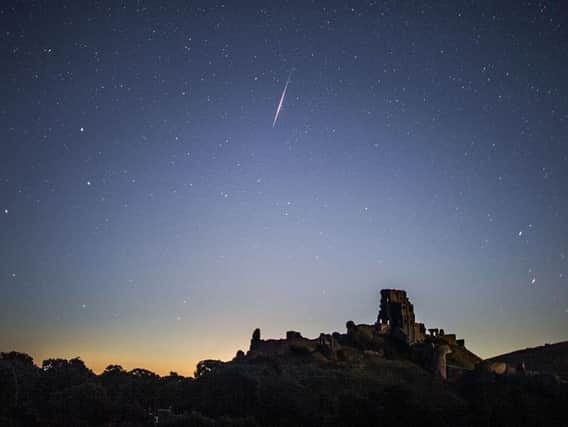Orionid Meteor Shower 2019: How to see shooting stars from Lancashire tonight


Gaze upwards and - if the weather remains clear as predicted - you'll be treated to up to 25 shooting stars an hour as the Earth intersects the orbit of Halley's Comet.
Here's everything you need to know about the spectacle.
What are the Orionids?
The Orionid Meteor shower is caused by dust from the tail of Halley's Comet burning up in the Earth's atmosphere nearly 60 miles above our heads.
Advertisement
Hide AdAdvertisement
Hide AdWe haven't seen the comet itself since 1986, but our planet passes through its orbit twice a year, bringing the Orionids in October, and the Eta Aquarids in May.
They are so-called because they appear to originate in the same part of the sky as the constellation Orion.
When is the best time to see them?
The meteors have actually been visible in the night sky from around 2 October, but they peak in intensity this evening (21 October) and over the next few days.
For the best results, you might want to stay up a little later: the best viewing time is recommended as between midnight and dawn, and getting yourself to as dark a location as possible will increase your chances of spotting an Orionid.
Advertisement
Hide AdAdvertisement
Hide AdThis year's shower coincides somewhat unfortunately with a waning gibbous moon, which will brighten the sky.
Do I need a telescope?
Thankfully, budding stargazers need not splash out on expensive tech to see the Orionids; they will be visible with the naked eye.
You may need some patience though - 25 shooting stars an hour equates to roughly one every two and a half minutes, so it's best to get comfortable.
You'll also need to be alert, with the shooting stars zipping across the sky at an incredible 41 miles per second.
When will the next meteor shower be?
Advertisement
Hide AdAdvertisement
Hide AdDon't worry too much if you don't get outside or it's too cloudy where you live.
The next meteor shower visible from the UK will be the Leonids, reaching their peak across the evenings of November 17 and 18.
If you're after the Orionids specifically, you'll have to wait until October 21 of next year.